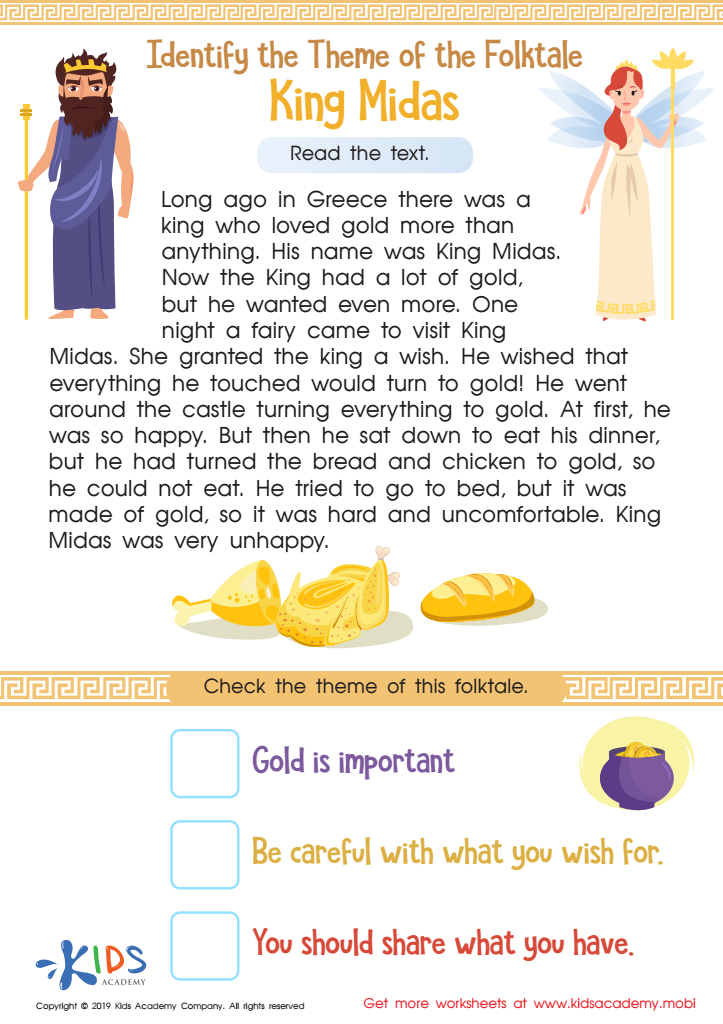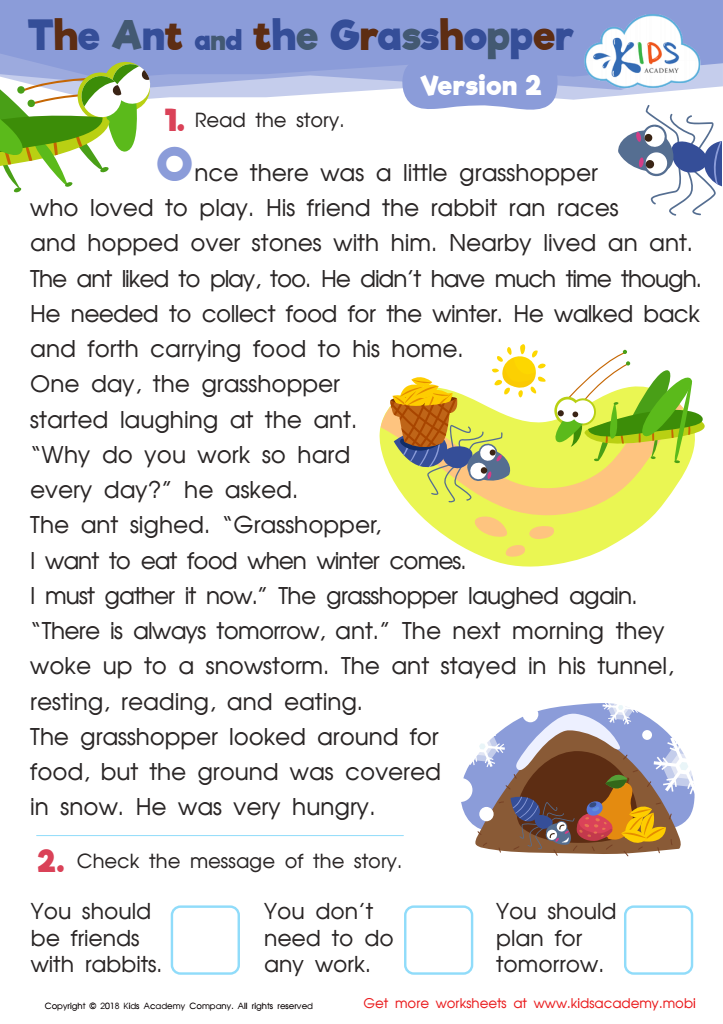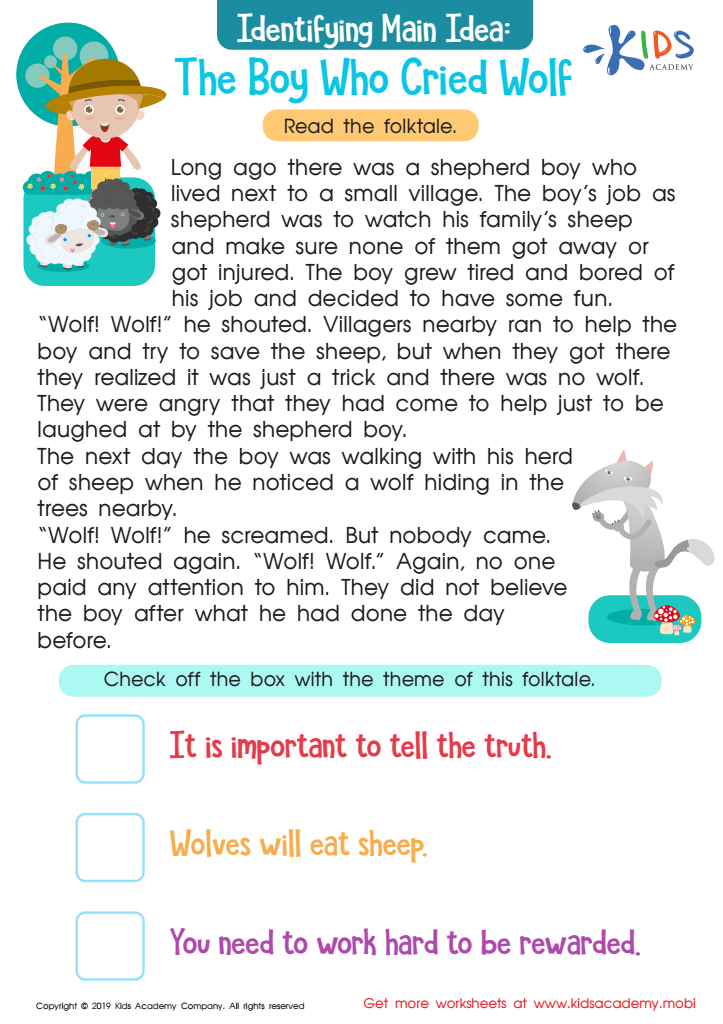Moral lesson understanding Normal Building Vocabulary Worksheets for Ages 8-9
3 filtered results
-
From - To
Our "Moral Lesson Understanding Normal Building Vocabulary Worksheets for Ages 8-9" are specifically designed to enhance both your child’s language skills and moral development. Through engaging activities and thought-provoking passages, children will expand their vocabulary while learning important ethical lessons. Each worksheet provides stimulating exercises that encourage critical thinking and comprehension. Perfect for young readers, our resources not only help kids grasp new words but also understand and appreciate pertinent moral values. Boost your child’s reading ability and character growth simultaneously with our thoughtfully crafted worksheets. Explore today to create a solid foundation for both literacy and moral understanding.


King Midas Worksheet


The Ant and The Grasshopper Version 2 Worksheet


The Boy Who Cried Wolf Part 2 Worksheet
Fostering moral understanding and building a robust vocabulary in children aged 8-9 is critical for their overall development and future success. At this age, children start to form their own sense of right and wrong, influenced by family, school, and society. Learning moral lessons helps children develop empathy, responsibility, and a strong ethical foundation, guiding them to make good decisions and develop positive relationships both now and in the future.
Building vocabulary at this crucial age enhances children’s ability to communicate effectively, comprehend complex texts, and think critically. A rich vocabulary empowers them to express their thoughts clearly and persuasively, laying the groundwork for academic achievement and lifelong learning.
When teachers and parents prioritize both moral lessons and vocabulary building, they offer a balanced approach to development. Moral stories and discussions about ethical dilemmas can simultaneously introduce new words and concepts, making learning engaging and meaningful. This dual focus helps children not only to understand the world around them but also to navigate it with integrity and confidence.
By investing in these areas, adults help children grow into well-rounded, articulate, and morally conscious individuals, ready to face life's challenges and contribute positively to society.

 Assign to My Students
Assign to My Students





.jpg)










